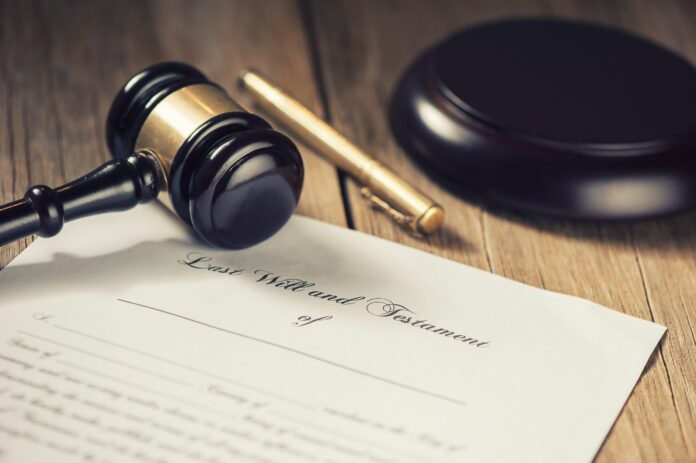Handling the intricacies of succession disputes may be an overwhelming undertaking, particularly in the aftermath of a loved one’s death. Understanding the nuances of estate disputes, the legal processes involved, and the best strategies for resolution is crucial for inheritors who find themselves in the midst of such conflicts. This guide aims to demystify estate litigation and provide practical advice for those dealing with these challenging situations.
Understanding Estate Litigation

Estate litigation involves legal disputes over the distribution of a deceased person’s assets. These conflicts may result from a number of things, such as ambiguous or disputed wills, claims of undue influence, disagreements amongst beneficiaries, or arguments over how executors or trustees should administer the estate. Estate litigation is a complicated and emotionally charged procedure that frequently calls for the knowledge of legal experts with experience in this field.
Common Causes of Estate Litigation
Contested Wills

One of the most common causes of estate litigation is a contested will. A will’s validity may be contested by beneficiaries or prospective successors for a number of reasons, including allegations that the testator—the person who produced the will—lacked the mental capacity necessary to write a valid one or that the testator was under undue influence or coercion when creating the will.
Disputes may also arise if there are multiple wills, with beneficiaries arguing over which version is the most recent and legally binding.
Undue Influence
Undue influence occurs when someone exerts excessive pressure on the testator, leading them to make decisions that they would not have made otherwise. This is often alleged in cases where a will significantly benefits one individual, particularly if that person had a close relationship with the testator or was in a position of power over them, such as a caregiver.
Disputes Among Beneficiaries
Conflicts among beneficiaries are another common cause of estate litigation. These disputes can arise from perceived inequalities in the distribution of assets, disagreements over the interpretation of the will, or personal conflicts that predate the estate proceedings. Beneficiaries may also disagree on the sale or management of estate assets, leading to further legal challenges.
Executor or Trustee Misconduct
Trustees and executors are in charge of overseeing the estate and making sure that the assets are dispersed in line with the terms of the trust or bequest. However, if beneficiaries believe that the executor or trustee is not fulfilling their duties, acting in bad faith, or mismanaging the estate, they may seek legal recourse through estate litigation.
Steps in Estate Litigation

Initial Consultation
Speaking with a lawyer who focuses in estate litigation is the first step in the process. The lawyer will study the case, evaluate the claims’ merits, and offer advice on the best course of action during this session. To make this procedure easier, it is imperative that you obtain all pertinent papers, including the will, trust agreements, and any communication pertaining to the estate.
Filing a Claim
If the attorney believes that there is a valid case, they will file a claim with the appropriate court. This claim will outline the grievances and the desired outcome, such as the invalidation of a contested will or the removal of an executor. We’ll notify them and give the other parties a chance to reply to the disagreement.
Discovery Process
The discovery process involves gathering evidence to support the claims made in the litigation. This may entail gathering bank statements, medical data, and other pertinent records in addition to deposing witnesses. A solid case is built during the discovery phase of estate litigation, which also serves to expose any flaws in the other side’s reasoning.
Mediation and Settlement

Many estate litigation cases are resolved through mediation or settlement rather than going to trial. Through mediation, a third person who is impartial assists in mediating a dispute between conflicting parties in an effort to find a mutually accepted conclusion.
Direct settlement talks between the parties or their lawyers are another option. These non-traditional approaches to resolving disputes can save time, save legal expenses, and provide a more cooperative result.
Trial
If mediation or settlement negotiations fail, the case will proceed to trial. A judge will hear arguments and evidence from both sides throughout the trial before rendering a final ruling on the matter. Trials can be expensive and time-consuming, but in complicated instances, they could be required to get a just conclusion.
Tips for Inheritors Facing Estate Litigation

Stay Informed
One of the most important steps you can take as an inheritor involved in estate litigation is to stay informed about the process and your legal rights. Understanding the legal principles and procedures involved can help you make informed decisions and avoid common pitfalls.
Keep Detailed Records
Maintaining detailed records of all communications, documents, and transactions related to the estate is crucial. These records can serve as valuable evidence during the litigation process and help support your claims.
Seek Professional Advice
Estate litigation can be highly complex, and attempting to navigate it without professional assistance can be risky. Engaging an experienced attorney who specializes in estate litigation can provide the expertise and guidance needed to achieve a favorable outcome.
Consider Emotional Impacts
Estate litigation often involves disputes among family members, which can exacerbate emotional tensions and lead to long-lasting conflicts. It’s important to consider the emotional impact of litigation and seek support from friends, family, or a therapist to help manage stress and maintain relationships.
Explore Alternative Dispute Resolution
While litigation may be necessary in some cases, exploring alternative dispute resolution methods such as mediation can provide a more amicable and cost-effective solution. Mediation allows the parties to work collaboratively to resolve their differences, which can help preserve relationships and achieve a more satisfactory outcome.

Conclusion
Estate litigation can be a challenging and emotionally taxing process for inheritors. By understanding the common causes of estate disputes, the steps involved in litigation, and the best practices for managing these conflicts, you can navigate this complex landscape more effectively.
Whether through litigation or alternative dispute resolution, seeking the guidance of an experienced attorney and staying informed about your rights can help you achieve a fair resolution and protect your interests.







